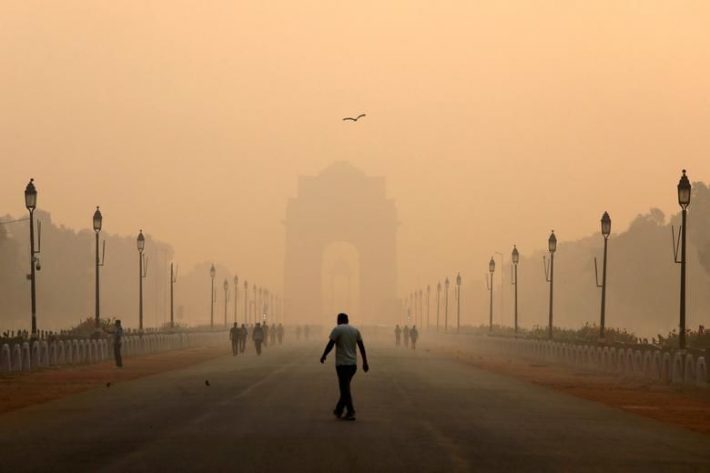Failure to take strong action against climate change could be an economic disaster for developing nations in the Asia-Pacific, the Asian Development Bank warned on Thursday.
Developing nations face a potential 17% loss to the region’s collective gross domestic product (GDP) by 2070 – and a 41% loss by 2100 – if high emissions persist, the ADB said.
The bank, based in Manila, urged more ambitious measures to curb its high level of fossil fuel use, saying in its inaugural climate report that while mitigation efforts have gained momentum, they remain well off global targets.
ALSO SEE: Algae Strain Could Sequester Carbon From Oceans, Factories – WI
The ADB counts 46 Asia-Pacific countries as ‘developing Asia’, stretching from Georgia to Samoa but excludes Japan, Australia and New Zealand.
Supercharged tropical storms
Current climate policies would result in global warming by around 3 degrees Celsius (37.4F) within this century, the ADB said, twice the cap of 1.5C warming agreed by governments nearly a decade ago to prevent a cascade of dangerous consequences.
“Climate change has supercharged the devastation from tropical storms, heatwaves, and floods in the region, contributing to unprecedented economic challenges and human suffering,” ADB President Masatsugu Asakawa said.
Despite significant strides in reducing emissions intensity, and a 50% decrease across developing Asia since 2000, the region still produces nearly half of global greenhouse gas emissions.
Region generates half of global emissions
Rapid production, rising energy demand and increased domestic consumption fuelled the emissions rise over the past two decades, the ADB said.
China accounted for two-thirds of the increase, while nations in South Asia and Southeast Asia contributed 19.3% and 15.4%, respectively.
The energy sector is the region’s largest emitter, responsible for 77.6% of total emissions, driven by a heavy reliance on the use of fossil fuels such as coal and LNG for power.
Left unchecked, these trends place developing Asia at the centre of the climate crisis, both in terms of impacts from global warming and solutions, the ADB said.
“The window to stay within the 1.5C target of the Paris Agreement is rapidly closing,” ADB said.
It urged countries to come up with more ambitious and large-scale mitigation action plans, accelerate the transition to net zero emissions and scale up investments in advanced climate technologies and nature-based solutions.
Up to 300 million people in the region could be threatened by coastal inundation, and trillions of dollars of coastal assets could be damaged annually by 2070 if the climate crisis continues to accelerate, the Manila-based lender said.
“Urgent, well-coordinated climate action that addresses these impacts is needed before it is too late,” Asakawa said.
- Reuters with additional editing by Jim Pollard
ALSO SEE:
Satellite Finds Methane, CO2 Plumes Over Sites in Asia, Africa, US
Funding Gap Hurts Climate Talks While World Faces 3.1C Warming
Climate Change Has Cost China $32 Billion in Just One Quarter
Scientists Fear Nature’s Carbon Sinks Are Failing – Guardian
Floods or Drought: Climate Change Worsens Global Water Woes
Climate Change ‘Fuelled’ Rain That Led to Fatal Indian Landslides
Energy Emissions Set to Peak But ‘Not in Time’ For Climate Goals
LNG’s Carbon Footprint 33% Bigger Than Coal’s – CC
























